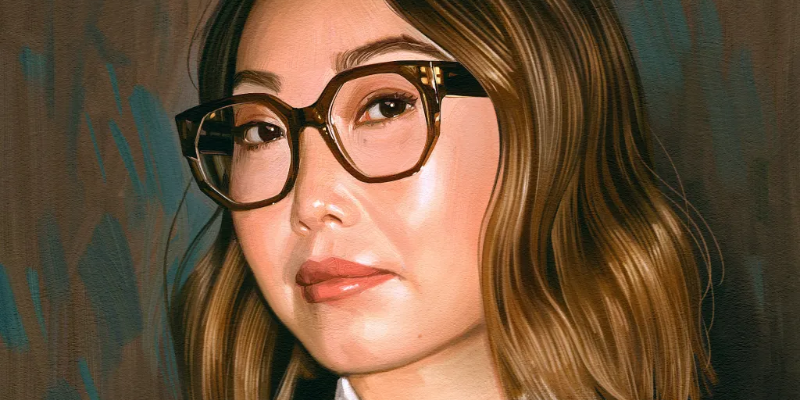
Lulu Wang on Balancing Self and Collaboration
This Week on the Talk Easy Podcast with Sam Fragoso
Illustration by Krishna Bala Shenoi.
Talk Easy with Sam Fragoso is a weekly series of intimate conversations with artists, authors, and politicians. It’s a podcast where people sound like people. New episodes air every Sunday, distributed by Pushkin Industries.
*
Following the success of her autobiographical 2019 film, The Farewell, Lulu Wang has emerged as one of the most exciting voices in Hollywood.
With the arrival of her new series Expats, she joins us to discuss the responsibility she felt creating the Hong Kong-based show, collaborating with actor Nicole Kidman, and Wang’s personal connection to the project. Then, we unpack the contrasting perspectives embedded in the story, what she witnessed growing up in Miami as an expat herself, and how she processes her family history today.
On the back-half, Lulu reflects on her college years where she began to find her creative voice, the road to her debut feature film Posthumous, and why she wanted to tell a more personal story in The Farewell, which she first narrated on This American Life. To close, we talk about her full-circle moment creating Expats and the importance of community.
Subscribe and download the episode, wherever you get your podcasts!
From the episode:
Sam Fragoso: What did making The Farewell mean to you?
Lulu Wang: It’s quite disorienting to be told for most of your life that all of your instincts are wrong. Maybe that’s too harsh of a way to put it. There’s a real humility in Chinese culture… (laughs).
SF: I fear if we don’t laugh, we’re just going to start crying again.
LW: Correct.
SF: (laughs) That’s a lot.
LW: So much has changed. When I was making The Farewell, it was 2016— seven years ago. It wasn’t that long ago, and yet our culture has changed so much that when you talk about identity or talk about a hyphenate story that’s an American story, people nowadays are like, “Of course not all American stories are white.” That’s an of course now. When I was pitching The Farewell, it was not that.
SF: How did you reckon with that while making the film?
LW: So many people told me it wasn’t going to work. I had so much fear while making it, and I appreciate the level of support I got. But I’ve always had to navigate not only my fear, but everyone else’s fear around me. My parents being in American society, my friends coming to my parents’ house for the first time and not knowing how to act. I’ve had to carry this trepidation for other people. While making the movie, I had to constantly fight for something that I instinctively knew was right but there was no evidence of.
SF: Like what?
LW: Like the fact that, even though the film was going to be 75% in Mandarin, people would still be able to relate. That they could read subtitles. The only way to do that was to let go of the fear and have a sort of blind faith that it was going to work out. When the film came out and so many of my instincts were proven right, it was just disorienting. Like, “Oh wait, how do I shift how I’m listening? How do I shift my openness? Maybe I need to put some limits and protections around myself, so that I can practice listening to myself and listen less to others.”
I’m always trying to navigate this balance of collaboration, which is so incredibly important to me, and listening to my own voice. Sometimes when I listen to a lot of people, that might look like, oh, she doesn’t know what she wants. But it’s actually — because I know what I want — I want to stress test it. I’m honing the yes and no’s to be quicker.
Talk Easy
Talk Easy with Sam Fragoso is a weekly series of intimate conversations with artists, authors, and politicians. It’s a podcast where people sound like people. New episodes air every Sunday, distributed by Pushkin Industries.



















